With the Hong Kong protests well into the 18th week, frontline protesters have gone from blocking roads to “hit and run” vandalism. Over the months, the mass demonstrations against the now-scrapped extradition bill have morphed into a wider movement for democracy and against Beijing with little end in sight. But protesters are not simply trashing stores as they roam the streets – they have specific targets. At times, die-hard activists may lay siege to one business whilst neighbouring stores go about their business unscathed. HKFP explains why.

Best Mart 360
The snack and food chain’s chairman Lin Tsz-fung stands accused of having ties with the “Fujian gang” who have physically attacked protesters during the summer’s protests.

The brand issued a statement saying the accusation was false, and many of its stores have remained closed for days on end.
“We never supported any violent acts,” the retailer said. “Our chairman and management are all common businesspeople. We hope residents can rationally express their demands.”

A mahjong house in Tsuen Wan was also targeted three times after it was accused of having links to the thugs. The business later posted a notice stating that they have no such ties, and they supported the protesters’ demands.
Yoshinoya
In July, the Hong Kong franchise of fast-food chain Yoshinoya published a Facebook post which was interpreted as being insulting to the police force.

The chain later apologised for the post, after Marvin Hung – CEO of Hop Hing Group which runs local Yoshinoya branches – told Chinese state-owned newspaper Wen Wei Po that he was angered after he heard about the post. Protesters were, in turn, angered by the response.
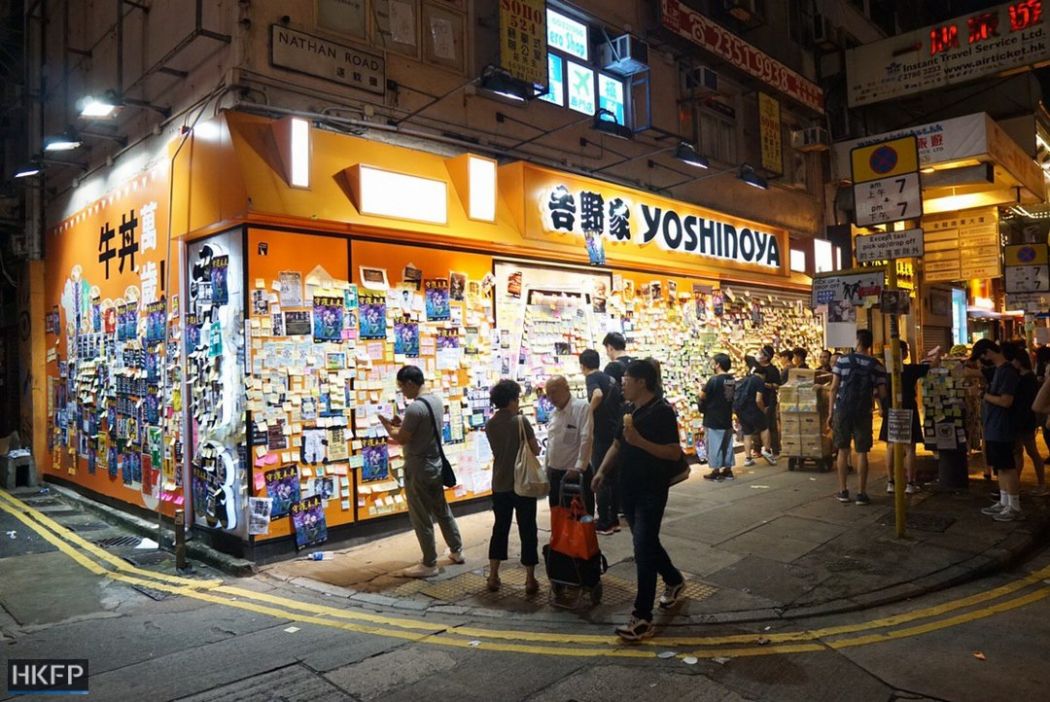
Maxim’s franchises
Maxim’s franchises – including Arome bakery, several Chinese restaurant brands, Genki Sushi, Starbucks and others – have been in the crosshairs following of comments by Annie Wu, the daughter of Maxim’s wealthy founder.
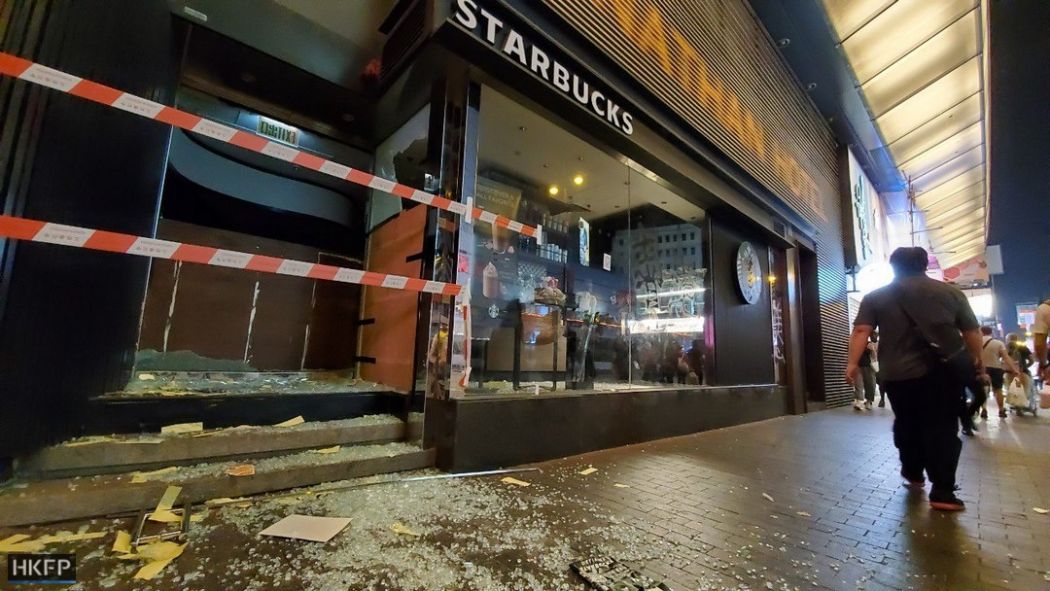
Wu delivered a speech in September at the UN’s human rights council in Geneva, in which she condemned the protests and said Beijing’s hardline stance against democracy advocates should be supported.

Maxim’s has said in a statement Wu had no official position in the company.
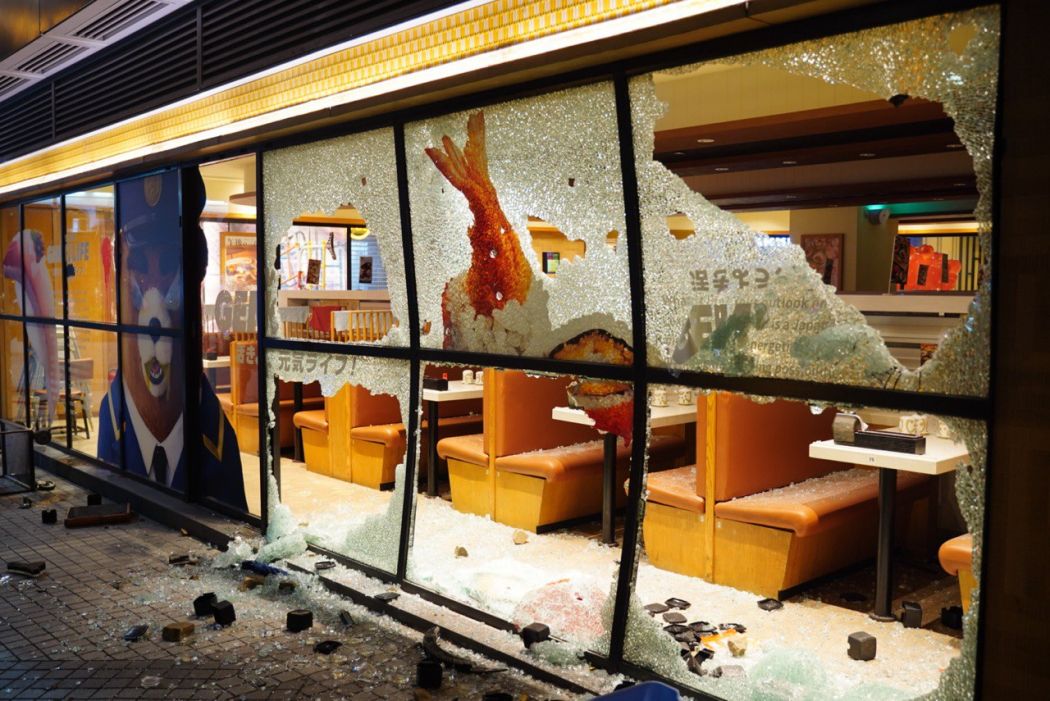
Chinese state-owned corporations
Protesters have targeted Chinese state-owned corporations, such as the Bank of China, China Construction Bank, and Industrial and Commercial Bank of China branches on high streets and shopping malls.
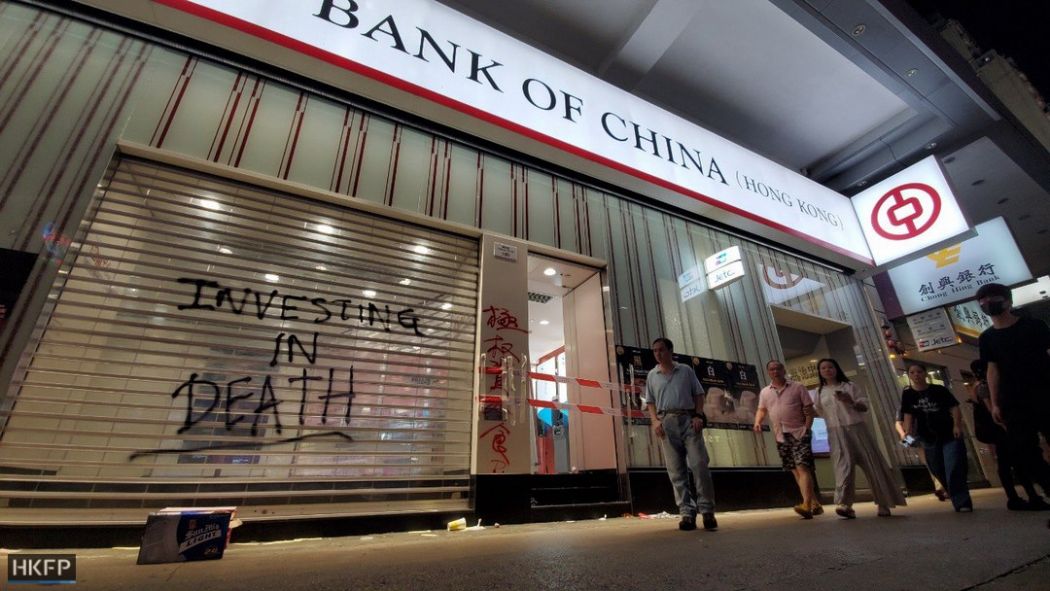
The Chinese Banking Association of Hong Kong condemned destruction to bank branches in a statement on October 9.
“We strongly support the Hong Kong SAR government to stop the riots as soon as possible, to provide a safe environment so that the bank industry can operate normally to serve the public and corporations,” it said.

It is not only mainland banks – a branch of Chinese tech firm Xiaomi was also covered in graffiti last week during the October 1 unrest.
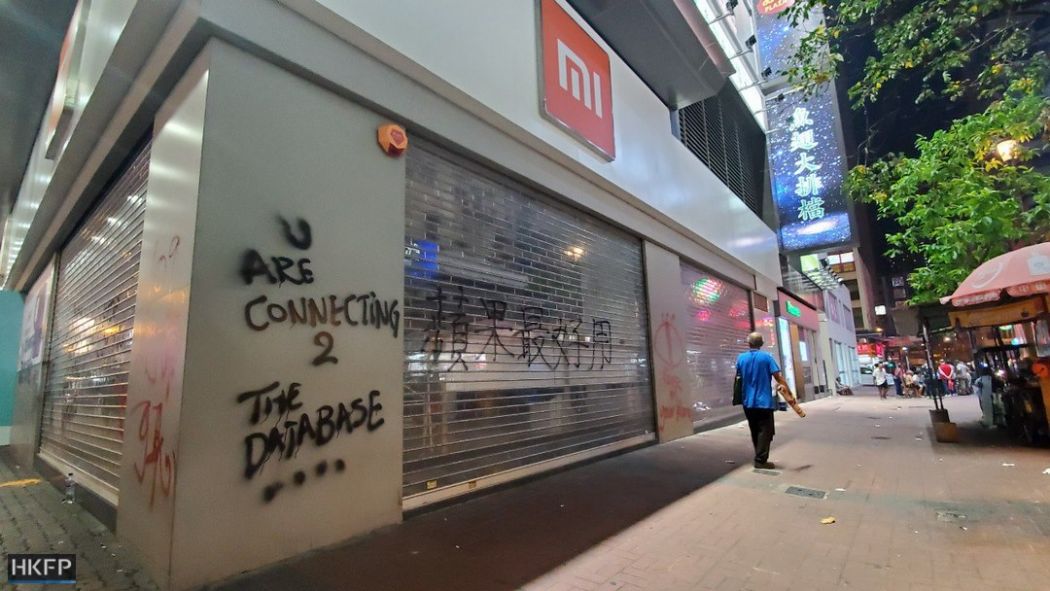
MTR stations
The MTR Corporation (MTRC) has been under fire after the largely government-owned transit firm declared it would close stations in the area of protests.
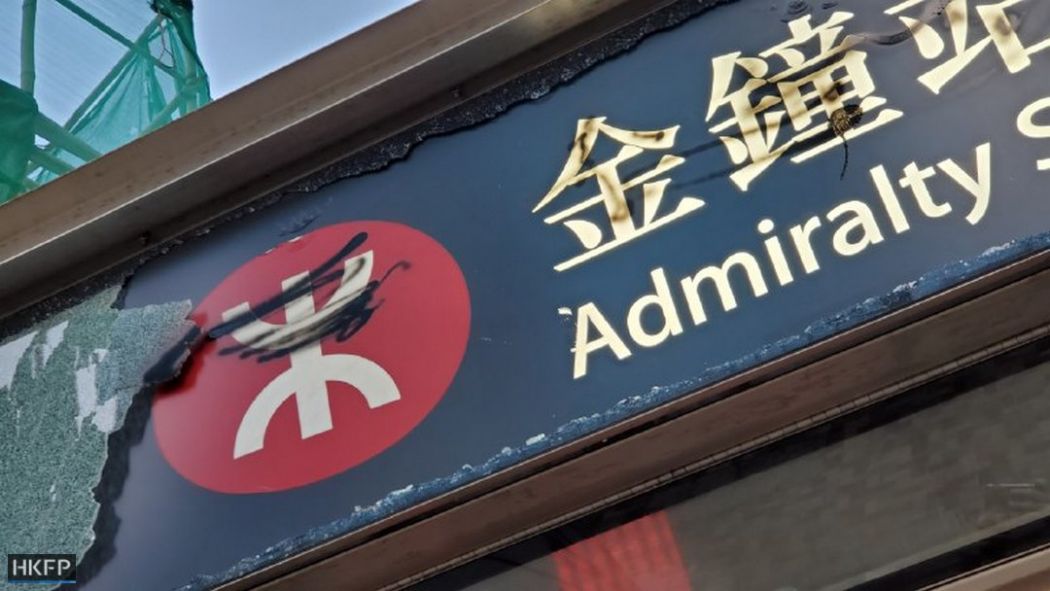
The move came after Chinese state media pressured the company, claiming that it was “assisting rioters.” On October 4, the MTRC closed the entire system amid protests and vandalism.

The company has also been criticised for the handling of the July 21 mob attack in Yuen Long, with critics accusing the company of failing to keep passengers safe.

The MTRC was plunged into another controversy on August 31 when police officers charged into train carriages at Prince Edward MTR station and beat up those inside.

Many protesters have urged the MTRC to release all security camera footage but it published only a selection of screenshots, promising only that the tapes would be preserved.
The MTR offers a media tour of the vandalism at Mong Kok station, which remains closed on Wednesday. However, there is no Q&A session. pic.twitter.com/APlw0WZCPn
— Hong Kong Free Press (@HongKongFP) October 8, 2019
As of October 7, around 1,200 entry/exit gates, 800 ticket-issuing machines and add-value machines, 900 CCTV cameras, 40 elevators and 70 roller shutters have been damaged.
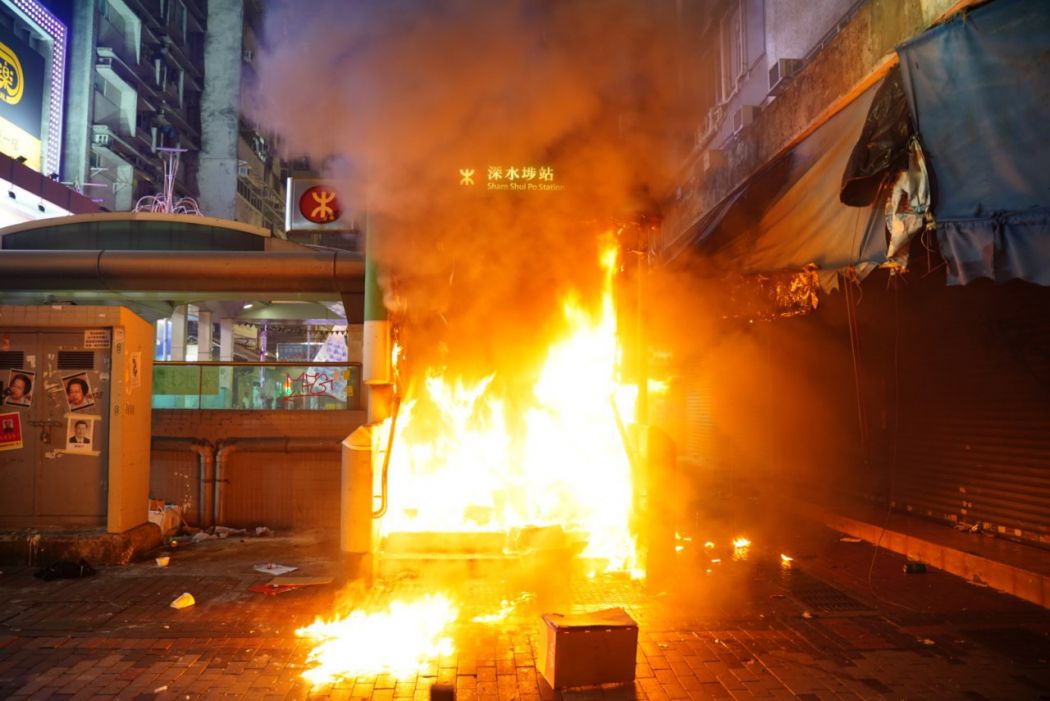
“Due to the extensive damages done, despite the hard work of the maintenance staff, some of the stations and station facilities were unable to be put back into service due to the limited number of available spare parts,” the MTR said in a statement on Tuesday.
Mistakes
Protesters have admitted mistakes after striking businesses such as the Shanghai Commercial Bank and Yifang Taiwan fruit tea, believing them to be Chinese-owned firms.

Shanghai Commercial Bank was founded in Shanghai, but it is now a Hong Kong-owned bank. Protesters have issued a statement of apology to the bank.

Yifang’s Weibo and WeChat accounts in mainland China posted messages opposing the August 5 general strike and voicing support for “One Country, Two Systems.” But the manager of Hong Kong’s franchise branches has said that it was not their stance.
今朝一擘大眼,有人傳來一啲咁美麗嘅畫面。原來有人晨早義務幫我地清潔返。香港人真係好可愛的!
Posted by 風波裡的總代理 – 劉心暉 Thomas on Sunday, 6 October 2019
On October 6, protesters cleaned up a Yifang branch in Hong Kong according to Thomas Lau, the manager of the Hong Kong franchise: “Hong Kong people are really very cute,” Lau said.
Codes
Protesters have developed a set of codes to describe their actions. For instance, “renovation” means trashing the store, whilst “decoration” means spray-painting slogans.
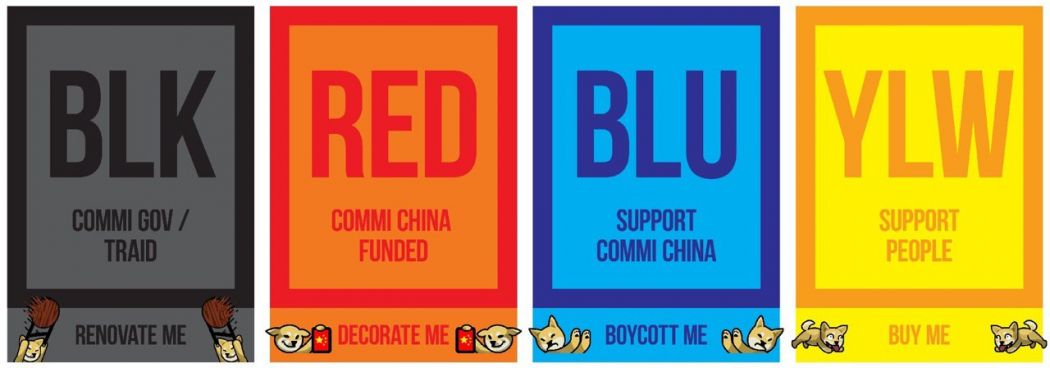
Sometimes, the protest is referred to as “Hong City Online 2.0” and the throwing of petrol bombs as “fire magic.”
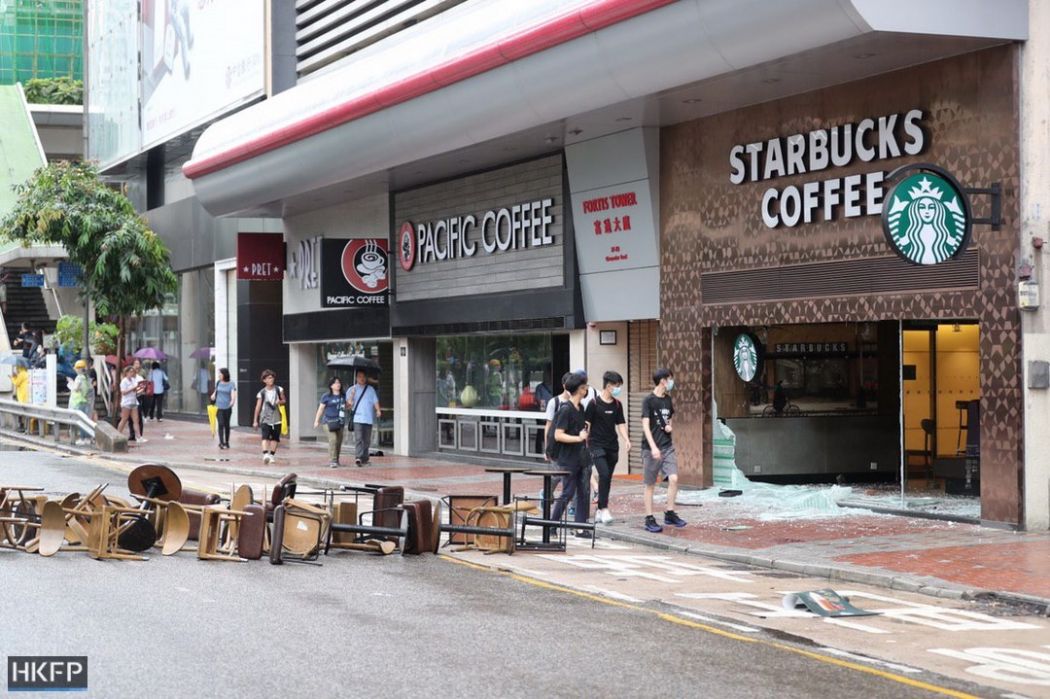
Looting and stealing are discouraged though last week, some women – who did not appear to be protesters – were spotted going through the debris of a wrecked store.
The first looters of HK .. two aunties picking stuff up after protesters trashed a 360 shop. https://t.co/OZ2XqDl7Lw pic.twitter.com/5f0Wg2F10O
— Selina Cheng 鄭嘉如 (@selina_cheng) October 4, 2019
Meanwhile, protesters have also created a list of shops supportive of their cause.
The list is accessible on a special Google map, as well as on Telegram messaging app channels and other apps. The businesses include both independent shops and chains.
One tea shop in Jordan put up signs saying “Refuse blue ribbon! Refuse police! No dogs allowed!” in reference to pro-Beijing supporters and police.
Tea For U in Jordan is among one the city’s “yellow ribbon” independent businesses.
The sign says:
“Face masks available, free water.”
“Hongkongers add oil”
“Reclaim #HongKong, revolution of our time.”#hongkongprotests #antiELAB #china pic.twitter.com/iQiwT4FuxT— Hong Kong Free Press (@HongKongFP) October 6, 2019
Protesters have urged Hongkongers to “punish” such firms with cash.
Hong Kong Free Press relies on direct reader support. Help safeguard independent journalism and press freedom as we invest more in freelancers, overtime, safety gear & insurance during this summer’s protests. 10 ways to support us.

